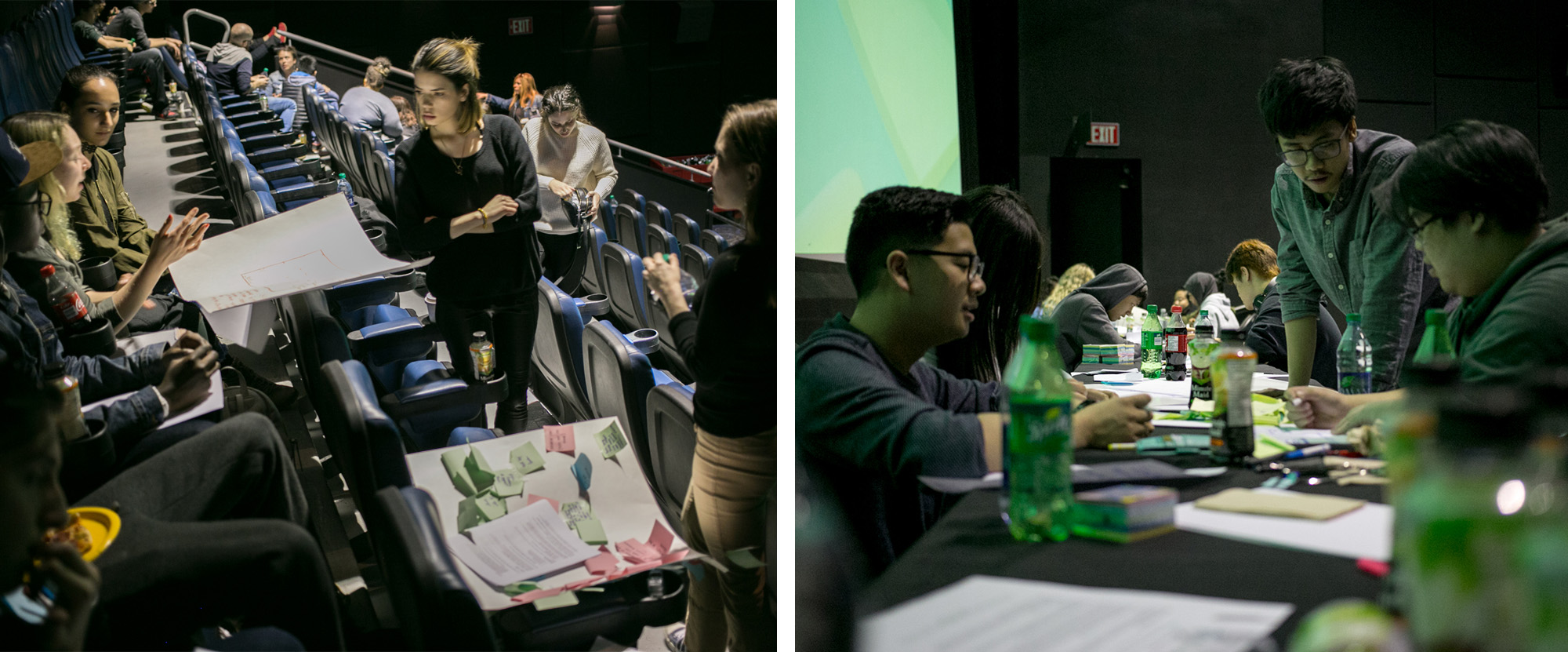Workshop 1: Reinventing the Theatre
What happens when you put 40 young and creative teenagers into a movie theatre for 6 hours, loaded with popcorn and pizza, and all the design tools and mentorship they could ask for? Their mission: to create the ultimate in-theatre experience of the future.
Studio Bud worked closely with Cineplex's Research & Marketing teams to better understand their Gen Z audience, and engaged a local high school to align research endeavours with educational opportunities in the real world. The workshop was aligned to Toronto District School Board curriculum for Communications Technology, and designed to ignite blue-sky thinking—allowing the kids to imagine to the ends of their creativity without constraints. Simply, we allowed teens to ideate with no boundaries, in order to see what an unfiltered view of the theatre may look like.
Five unique ideas were generated by the end of the workshop, after which the Studio Bud team worked with Cineplex to extract key insights that informed each idea. We discovered that they care about entertainment offerings that are relevant to their day-to-day social lives, go beyond what they can get on Netflix, and that will be a home away from home—all anchored around scalability, exclusivity, and shareability.






